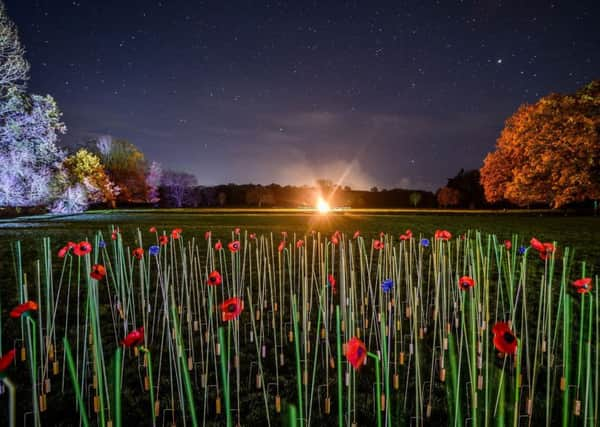Beacon of light a century after the guns fell silent


This poignant scene at Barrington Court in Somerset was repeated around the country as a thousand beacons were lit in acts of quiet remembrance, as a nation paid dignified tribute to all those lost in the fields of battle, or whose lives were irrevocably changed by a conflict that engulfed Europe and beyond.
These beacons symbolised the “light and hope” that emerged from the horror of a war that cast such a dreadful shadow over so many villages, towns and cities.
Advertisement
Hide AdAdvertisement
Hide AdFor a long time, the First World War was regarded by many as a conflict from a bygone age viewed through sepia-tinged photographs and silent newsreels. Something from a distant past.
However, the past four years has reawakened public interest in a war that changed the face of human history and the seismic impact of which can still be felt today.
There has been a growing desire among people to find out what happened to their relatives. For some, this has meant going through fading notebooks gathering dust in an attic, for others it has involved a voyage of discovery that has taken them to battlefields and cemeteries in far away places with strange, unfamiliar names.
It’s sobering to think that many of those whose names solemnly adorn the countless war memorials were still only teenagers when they died. How many parents today could imagine their 18 year-old sons heading off to fight?
Advertisement
Hide AdAdvertisement
Hide AdIn the end, of course, this wasn’t the war to end all wars. So why continue to remember those who fought in it and suffered its agonies when they are no longer with us?
Perhaps it is precisely because they are no longer here that we must honour their loss and sacrifice, lest we forget.
For they aren’t just fading faces on grainy photographs taken a lifetime ago, they were our fathers, our great uncles and grandfathers. And in our hearts and memories they live with us still.